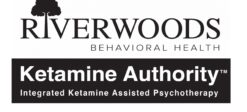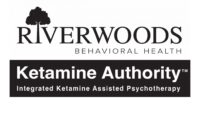
In our practice, we've observed patients who, after receiving ketamine treatment, achieve significant therapeutic breakthroughs in sessions that previously seemed to stall. This phenomenon suggests that ketamine's ability to accelerate the therapeutic process is not just anecdotal but a pivotal aspect of its integration with cognitive therapy.
It appears to create a window of increased emotional receptiveness, allowing patients to confront and process otherwise inaccessible emotions. Moreover, the reduction in negative thought patterns presents an intriguing area for further exploration.
To fully grasp the potential and intricacies of these benefits, let's examine how they transform the therapeutic landscape.
Accelerating Therapeutic Breakthroughs
Ketamine's unique properties have significantly accelerated therapeutic breakthroughs in cognitive therapy, offering hope where traditional methods fall short. We've observed how it rapidly alleviates symptoms of severe depression and other mental health conditions that are often resistant to standard treatments. Its ability to quickly induce changes in the brain is unlike anything we've seen with other medications, making it a game-changer in the field.
Through our experiences, we've noticed that ketamine's impact isn't just about symptom relief. It fundamentally alters the brain's neuroplasticity, making it more receptive to new thought patterns and behaviors. This aspect is crucial for cognitive therapy, which relies on patients' ability to adapt and adopt new cognitive strategies. With ketamine, we're able to achieve significant progress in much shorter timeframes.
Moreover, ketamine has opened doors to treating a wider range of conditions. We're now able to help individuals who'd little to no hope of recovery through conventional means. It's not just a matter of managing symptoms; it's about fostering a deeper, more lasting change.
In essence, ketamine has revolutionized our approach to cognitive therapy. We're witnessing remarkable transformations, enabling our patients to reclaim their lives with newfound hope and resilience.
Enhancing Emotional Receptiveness
One of the most profound effects we've observed with ketamine therapy is its ability to enhance patients' emotional receptiveness, significantly enriching their therapeutic experience. This shift opens up a new realm of possibilities for healing, as clients become more attuned to their emotions and more open to discussing them. We've seen individuals who previously struggled to access or discuss their feelings start to engage with these emotions more freely and deeply.
This increased emotional receptiveness doesn't just make therapy sessions more productive; it accelerates the overall healing process. Patients are better able to connect with the core issues at hand, allowing for a more targeted and effective therapeutic approach. It's as if ketamine serves as a key, unlocking emotions that have been buried deep within, thus facilitating a more profound and meaningful therapeutic journey.
Moreover, this enhanced receptiveness encourages a stronger therapist-client connection, fostering a space of trust and openness. It's this very relationship that often serves as the foundation for significant breakthroughs in therapy. As we've integrated ketamine into treatment plans, we've witnessed firsthand how this emotional unlocking enhances the therapeutic alliance, making it a powerful tool in the realm of cognitive therapy.
Reducing Negative Thought Patterns
Building on the enhanced emotional receptiveness facilitated by ketamine therapy, we've also observed a significant reduction in patients' negative thought patterns. This is a crucial step forward in cognitive therapy, as persistent negative thoughts can severely limit a person's ability to progress and heal. We've found that ketamine, when used alongside traditional therapy methods, helps break down the barriers these thought patterns create, making it easier for patients to engage with positive coping strategies.
We've seen firsthand how this combination encourages a more optimistic outlook, even in those who've struggled with negative thinking for years. It's as if ketamine acts as a reset button, giving patients a fresh perspective and a chance to approach their problems from a new angle. This shift doesn't just improve their therapy sessions; it spills over into their everyday lives, improving relationships, productivity, and overall well-being.
It's important to note that while ketamine offers this incredible benefit, it's most effective when part of a broader, individualized treatment plan. We always ensure that its use is carefully monitored and tailored to each patient's specific needs, maximizing the positive impact on their journey toward recovery.
Frequently Asked Questions
How Does Ketamine Administration Impact Long-Term Cognitive Function Beyond the Scope of Therapy Sessions?
We're curious about how ketamine affects our brains in the long run, beyond just therapy sessions.
It seems there's potential for it to change the way we process thoughts and emotions over time.
We've read that it might help create new neural pathways, making it easier for us to think differently and handle stress better.
But we're also cautious, knowing there's still a lot to learn about its long-term impact on cognitive functions.
Are There Any Specific Patient Demographics or Conditions That Show a More Significant Benefit From the Combination of Ketamine and Cognitive Therapy?
We've been wondering if certain groups of patients or specific conditions benefit more from combining ketamine with therapy. It seems like there might be particular demographics or mental health issues that see a bigger improvement.
We're curious about who exactly might get the most out of this mix. It's all about finding the best ways to help people heal, and figuring out who responds best could really guide our approach.
What Are the Potential Risks or Side Effects of Using Ketamine in a Therapeutic Setting, Especially Concerning Cognitive Abilities and Mental Health?
We're curious about the potential risks or side effects of using ketamine in therapy, especially how it affects cognitive abilities and mental health.
While it's promising for treatment, we've heard there can be concerns. These might include memory issues, disorientation, or emotional blunting during treatment.
We're seeking a balanced understanding to weigh the benefits against possible downsides, aiming to make informed decisions for those considering this as part of their mental health care.
How Do Regulatory Bodies and Medical Institutions View the Use of Ketamine in Cognitive Therapy, and What Are the Legal Implications for Practitioners?
We're curious about how official organizations perceive ketamine's role in therapy and its legal effects on doctors. It seems like opinions are mixed, with some praising its potential while others worry about the risks.
We're trying to understand where the balance lies, and what guidelines practitioners must follow.
It's a complex issue that touches on both the promise of new treatments and the importance of safeguarding patient health and legal responsibilities.
Can Ketamine-Assisted Cognitive Therapy Be Integrated Into Traditional Mental Health Treatment Plans, and How Do Insurance Companies Typically Handle Coverage for Such Treatments?
We're exploring how to blend new treatments into established mental health plans, specifically focusing on insurance coverage.
It's a complex area, considering the innovative nature of the treatments we're discussing. Typically, insurance companies have strict guidelines about what they cover, and it's not always straightforward getting them to recognize emerging therapies.
We're curious about how these treatments can be made accessible and affordable for those who might benefit most.
Conclusion
In conclusion, we've discovered that ketamine significantly boosts cognitive therapy by speeding up therapeutic breakthroughs, increasing our emotional receptiveness, and lessening negative thought patterns.
This powerful combination not only propels us towards healing at an accelerated pace but also ensures that we're more open to processing and accepting our emotions.
By breaking the cycle of negative thoughts, ketamine opens the door to a more positive and hopeful outlook, fundamentally changing the way we approach our mental health.

